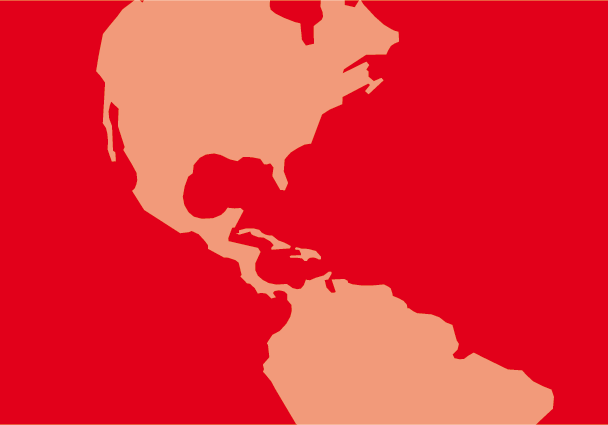The ICJ welcomes the ruling by the Supreme Court of Argentina that declared unconstitutional the amnesty laws that shielded human rights violators.
The ruling reaffirmed that laws that grant impunity to perpetrators of gross human rights violations – such as enforced disappearances, torture and extrajudicial executions- and crimes against humanity, violate international human rights law and principles of justice.
“This long-awaited ruling is a triumph for the tireless struggle of victims, families and campaigners”, said Federico Andreu-Guzmán, ICJ Deputy Secretary-General (Legal Affairs). “It also proves that human rights and the rule of law can prevail over impunity”.
The ruling, passed by a 7-1 majority, declared the “full stop” (1986) and “due obedience” laws (1987) unconstitutional. The first of these laws set a 60-day deadline for the initiation of new prosecutions for human rights violations carried out during Argentina’s military dictatorship from 1976 to 1983. The second granted immunity from prosecution to all members of the military except top commanders. These laws effectively impeded the prosecution of numerous human rights violations committed during Argentina’s “dirty war”. Rape and theft of babies born to “disappeared” mothers were expressly excluded from the laws.
“This landmark ruling unequivocally reaffirms that all laws or decisions that restrict prevent responsibility for human rights violations are unacceptable”, added Mr. Andreu-Guzmán. “The obligation to effectively prosecute and try suspects is unalterable, and we call on the Argentinean authorities to fulfil this obligation”.
Background
The Supreme Court ruled in a case brought in 2000 by the Centre for Legal and Social Studies (CELS), an Argentinean NGO and ICJ affiliate. After favourable rulings from a Federal judge and the Federal Court of Appeals, the case went to the Supreme Court. The ICJ and Amnesty International presented a legal memorandum to the Supreme Court detailing the incompatibility of the amnesty laws with the obligations of the State under international human rights law and calling on the Government to investigate, try and punish the perpetrators of gross human rights violations.
_____
Juristas aplauden sentencia contra leyes de impunidad
La Comisión Internacional de Juristas (CIJ) expresa su satisfacción por el fallo de la Corte Suprema de Justicia argentina que declaró la inconstitucionalidad de las leyes de amnistía que protegieron a violadores de derechos humanos. La sentencia reafirmó que las leyes que garantizan la impunidad de los responsables por flagrantes violaciones de los derechos humanos tales como desapariciones forzadas, tortura y ejecuciones extrajudiciales, como así también crímenes de lesa humanidad, son contrarias al derecho internacional de los derechos humanos y principios de justicia.
“Este esperado fallo es un triunfo para la incansable lucha de víctimas, familiares, defensores de derechos humanos y la sociedad argentina”, dijo Federico Andreu-Guzmán, Secretario General adjunto de la CIJ para asuntos jurídicos. “El Fallo muestra que los derechos humanos y el estado de derecho pueden derrotar a la impunidad”.
La sentencia, que contó con una mayoría de 7 a 1, declaró la inconstitucionalidad de las leyes de punto final (1986) y obediencia debida (1987). La primera de estas leyes estableció un plazo de 60 días para instruir procesos por violaciones de derechos humanos cometidas durante la dictadura militar argentina entre 1976 y 1983. La segunda de las leyes otorgó inmunidad a todos los miembros de las fuerzas armadas con la excepción de los comandantes superiores. Ambas leyes efectivamente impidieron el enjuiciamiento de los responsables por las numerosas violaciones de derechos humanos que tuvieron lugar durante la “guerra sucia” en Argentina. Se excluyeron de las leyes los delitos de violación y apropiaciones de bebés nacidos de madres desaparecidas.
“Este histórico fallo reafirma de manera inequívoca que todas las leyes o decisiones que buscan restringir o negar la responsabilidad por violaciones de derechos humanos son inadmisibles”, agregó el Sr. Andreu-Guzmán. “La obligación de enjuiciar a los responsables persiste, por lo que llamamos a las autoridades argentinas a cumplirla”.
La Corte Suprema dictó sentencia en un caso presentado en 2000 por el Centro de Estudios Legales y Sociales (CELS), una organización no-gubernamental argentina afiliada a la CIJ. Tras las sentencias favorables de un juez federal y de la Cámara Federal de Apelaciones, la causa llegó a la Corte Suprema. La CIJ y Amnistía Internacional presentaron un memorial en derecho a la Corte detallando la incompatibilidad de las leyes de amnistía con las obligaciones del Estado en materia de derechos humanos e hicieron un llamado al Gobierno a que investigue y juzgue a los responsables de violaciones de los derechos humanos.
Argentina-ruling impunity laws-press release-2005-eng (full text in English, PDF)
Argentina-ruling impunity laws-press release-2005-spa (full text in Spanish, PDF)




